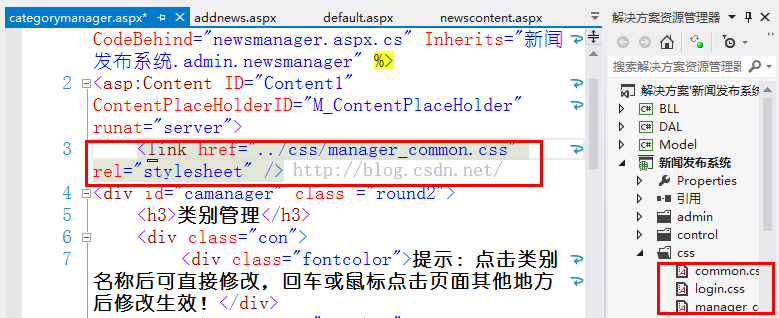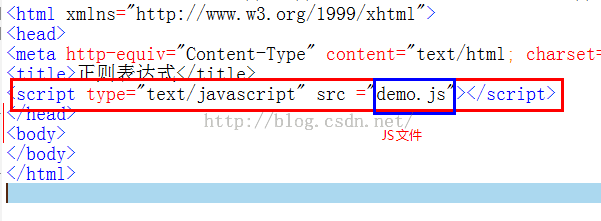The differences between XML, HTML, CSS and JS_javascript skills
In BS, we have all learned xml, html, css and js. At first, we could not distinguish the differences and connections between the four. As our knowledge increased, we gained some understanding.
For the first time, let’s take a look at what these four technologies are and what they can do?
(1) XML—Extensible Markup Language
Extensible Markup Language (a subset of Standard Generalized Markup Language) is a simple data storage language that uses a series of simple tags to describe data, and these tags can be established in a convenient way. Although Extensible Markup Language takes takes up more space than binary data, but extensible markup language is extremely simple to master and use.
<Hello> <bcd>China</bcd> <bcd>USA</bcd> <bcd>UK</bcd> </Hello>
(2) HTML—Hypertext Markup Language.
Hypertext Markup Language. It uses markup symbols to mark various parts of the web page to be displayed. The web page file itself is a text file. By adding tags to the text file, you can tell the browser how to display the content (such as how to process text, how to arrange pictures, how to display pictures, etc.). The browser reads web page files in sequence, and then interprets and displays the tagged content according to the tags,
<html> <head> <title>HTML</title> </head> <body> </body> </html>
HTML text contains so-called "link points". HTML uses hyperlinks to organize text information in various spaces into a network of text. In general, HTML is a language that integrates web page structure and content display.
(3) CSS—Cascading Style Sheet
Cascading style forms. It is a markup language that separates style information from web page content. In our beef brisket news release system, we have used CSS files to modify the styles of some labels.

We use CSS to define styles for each HTML element, which can also be used for multiple interfaces. When doing a global update, just modify the style.
body {
border :1px solid #000;/*整体的边框*/
font-size :14px;
} To put it bluntly, CSS is the language for setting the attributes of HTML elements on web pages.
(4) JavaScript
I was very depressed at first. Why is its name so similar to Java?
This is a typical marketing success. Its promotion success also borrowed from Java. When Microsoft began to realize that Javascript was becoming popular among web developers, Microsoft followed suit and created its own scripting language, JScript.
Javascript is a scripting language based on Object and Event Driven with security features. The purpose of using it is to work with HTML hypertext markup language and Java script language (Java applet) to link multiple objects in a Web page and interact with Web clients. For example, you can set mouseover effects, validate forms on the client, create customized HTML pages, display warning boxes, set cookies, and more.
function jsHello(){
alert('Hello World!');
} Embed the code into HTML language and it will pop up a "Hello World" dialog box when loading. As for how to embed it, we already knew it at the beginning of learning JS video.

This is all about the differences between XML, HTML, CSS and JS. I will also introduce you to the effect of combining these in the future. Interested friends please pay attention to the Script House website.

Hot AI Tools

Undresser.AI Undress
AI-powered app for creating realistic nude photos

AI Clothes Remover
Online AI tool for removing clothes from photos.

Undress AI Tool
Undress images for free

Clothoff.io
AI clothes remover

AI Hentai Generator
Generate AI Hentai for free.

Hot Article

Hot Tools

Notepad++7.3.1
Easy-to-use and free code editor

SublimeText3 Chinese version
Chinese version, very easy to use

Zend Studio 13.0.1
Powerful PHP integrated development environment

Dreamweaver CS6
Visual web development tools

SublimeText3 Mac version
God-level code editing software (SublimeText3)

Hot Topics
 1375
1375
 52
52
 Replace String Characters in JavaScript
Mar 11, 2025 am 12:07 AM
Replace String Characters in JavaScript
Mar 11, 2025 am 12:07 AM
Detailed explanation of JavaScript string replacement method and FAQ This article will explore two ways to replace string characters in JavaScript: internal JavaScript code and internal HTML for web pages. Replace string inside JavaScript code The most direct way is to use the replace() method: str = str.replace("find","replace"); This method replaces only the first match. To replace all matches, use a regular expression and add the global flag g: str = str.replace(/fi
 How do I create and publish my own JavaScript libraries?
Mar 18, 2025 pm 03:12 PM
How do I create and publish my own JavaScript libraries?
Mar 18, 2025 pm 03:12 PM
Article discusses creating, publishing, and maintaining JavaScript libraries, focusing on planning, development, testing, documentation, and promotion strategies.
 How do I optimize JavaScript code for performance in the browser?
Mar 18, 2025 pm 03:14 PM
How do I optimize JavaScript code for performance in the browser?
Mar 18, 2025 pm 03:14 PM
The article discusses strategies for optimizing JavaScript performance in browsers, focusing on reducing execution time and minimizing impact on page load speed.
 How do I debug JavaScript code effectively using browser developer tools?
Mar 18, 2025 pm 03:16 PM
How do I debug JavaScript code effectively using browser developer tools?
Mar 18, 2025 pm 03:16 PM
The article discusses effective JavaScript debugging using browser developer tools, focusing on setting breakpoints, using the console, and analyzing performance.
 10 Ways to Instantly Increase Your jQuery Performance
Mar 11, 2025 am 12:15 AM
10 Ways to Instantly Increase Your jQuery Performance
Mar 11, 2025 am 12:15 AM
This article outlines ten simple steps to significantly boost your script's performance. These techniques are straightforward and applicable to all skill levels. Stay Updated: Utilize a package manager like NPM with a bundler such as Vite to ensure
 How to Build a Simple jQuery Slider
Mar 11, 2025 am 12:19 AM
How to Build a Simple jQuery Slider
Mar 11, 2025 am 12:19 AM
This article will guide you to create a simple picture carousel using the jQuery library. We will use the bxSlider library, which is built on jQuery and provides many configuration options to set up the carousel. Nowadays, picture carousel has become a must-have feature on the website - one picture is better than a thousand words! After deciding to use the picture carousel, the next question is how to create it. First, you need to collect high-quality, high-resolution pictures. Next, you need to create a picture carousel using HTML and some JavaScript code. There are many libraries on the web that can help you create carousels in different ways. We will use the open source bxSlider library. The bxSlider library supports responsive design, so the carousel built with this library can be adapted to any
 How do I use source maps to debug minified JavaScript code?
Mar 18, 2025 pm 03:17 PM
How do I use source maps to debug minified JavaScript code?
Mar 18, 2025 pm 03:17 PM
The article explains how to use source maps to debug minified JavaScript by mapping it back to the original code. It discusses enabling source maps, setting breakpoints, and using tools like Chrome DevTools and Webpack.
 Using Passport With Sequelize and MySQL
Mar 11, 2025 am 11:04 AM
Using Passport With Sequelize and MySQL
Mar 11, 2025 am 11:04 AM
Sequelize is a promise-based Node.js ORM. It can be used with PostgreSQL, MySQL, MariaDB, SQLite, and MSSQL. In this tutorial, we will be implementing authentication for users of a web app. And we will use Passport, the popular authentication middlew




